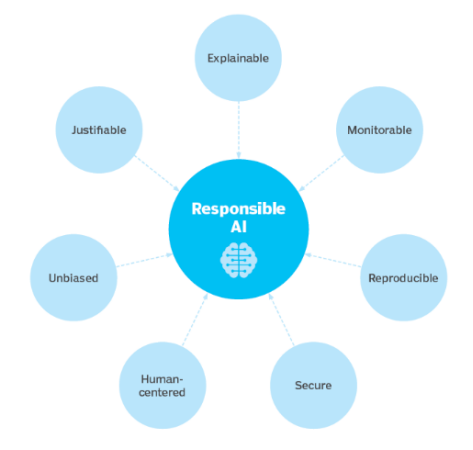Artificial Superintelligence: The Future of Artificial Intelligence

Over the years, artificial intelligence has undergone an extraordinary journey, evolving from basic algorithms with predefined rules to deep learning models capable of mimicking human cognitive processes, solving problems, and making decisions. This remarkable evolution naturally ignites our keen interest in the next frontier—Artificial Superintelligence (ASI).
What is Artificial Superintelligence (ASI)?
Superintelligence, also known as ASI, is a theoretical form of artificial intelligence (AI). Fundamentally, this superintelligent AI possesses cutting-edge cognitive abilities and advanced thinking skills that surpass any human capability. Although ASI remains a hypothetical future state, some current technological processes lay the groundwork for it. However, it is worth noting that the current level of AI is typically referred to as Artificial Narrow Intelligence (ANI), weak AI, or narrow AI. This is distinct from general AI, which involves software simulating human intelligence, including information retrieval, reasoning, and self-correcting learning processes.
Artificial intelligence is increasingly integrated into daily life, such as in virtual assistants, expert systems, and autonomous vehicles. Nevertheless, AI technology is still in its early developmental stages, and there are significant differences in the capabilities of various systems, but all existing systems are examples of narrow or weak AI. They are efficient systems capable of replicating or even surpassing human intelligence in specific tasks. ASI is also referred to as superintelligence or ultra-intelligent AI. Theoretically, ASI's superior capabilities will be widely applied across multiple fields, including cognition, general intelligence, problem-solving abilities, social skills, and creativity. Scientists believe that the first step in developing superintelligent technology is to construct Artificial General Intelligence (AGI), a system capable of completing a wide range of tasks with human-like proficiency. Some AI programs, like chess engines such as Fritz, already exceed human capabilities in specific domains. However, no superintelligent program currently surpasses human overall ability across all fields.
Characteristics of ASI
- AI-driven invention and programming: Autonomous creation of solutions.
- Multimodal support: Capable of processing text, audio, images, and video.
- Large Language Models (LLMs): Enhanced natural language processing and generation for human-computer interaction.
- Neural networks: Complex models resembling the structure of the human brain.
Artificial Intelligence vs. Superintelligence
When comparing artificial intelligence and superintelligence, it is clear that superintelligence is the future direction of AI development, but the two are not the same. Artificial intelligence focuses on mimicking human behavior, while superintelligence transcends human capabilities in many aspects. It represents a mode of thinking and behavior that far exceeds human intelligence levels. Current AI assists humans in performing jobs using machine learning algorithms for specific tasks, such as chatbots and autonomous vehicles. However, superintelligence will require further advancements in computer science and technology to exhibit cognitive abilities that outperform humans in technical and scientific issues.
How Can We Use Superintelligence?
As superintelligence approaches reality, we must consider how to leverage this technology. In simple terms, superintelligence can assist humans in developing better solutions than current technology and products. This means we can harness it to solve problems beyond our capabilities and intellectual understanding. Thus, the applications of superintelligence cover problem-solving across multiple industries such as finance, agriculture, healthcare, and even politics, driving progress that surpasses modern innovations.
Advantages of Artificial Intelligence
Enhanced Problem-Solving Ability
ASI can process and analyze vast amounts of data more quickly and accurately, leading to better decision-making and helping resolve complex issues across research fields and industries, including politics, scientific research, healthcare, and finance.
Increased Efficiency and Effectiveness
Superintelligence will automatically perform many tasks currently managed by humans, from solving mathematical problems to defusing bombs. Additionally, it will enhance the advantages of AI, reduce human errors, and improve safety and productivity.
24/7 Availability
Unlike humans, ASI systems can operate at any time, including day, night, and holidays.
Innovation and Progress
Experts predict that ASI will exhibit higher creativity than humans. These systems will be able to provide solutions to problems unimaginable to humans and surpass human capabilities in nearly all domains, thereby improving quality of life, such as understanding physics more deeply, solving technological challenges related to interstellar travel and Mars colonization, discovering new disease treatments, and extending human lifespan.

Dangers of Artificial Superintelligence
Unpredictability and Loss of Control
Because ASI systems possess capabilities that surpass human abilities, their behaviors may be difficult to predict or understand. Furthermore, these systems could self-improve or modify in ways that humans cannot comprehend, thereby altering technological applications.
Unemployment Issues
The emergence of ASI could lead to the automation of many human jobs, resulting in large-scale unemployment and causing economic and societal turmoil.
Weaponization
The capabilities of ASI will significantly enhance the destructiveness of military weapons and warfare, potentially leading to negative impacts on cybersecurity, programming, and political influence. Furthermore, malicious states, companies, or organizations may misuse this technology to harm humanity, for example, by collecting massive amounts of personal data or using biased algorithms to perpetuate discrimination.
Ethical and Moral Issues
Establishing moral and ethical standards for ASI systems may prove challenging, as humanity has yet to come to a consensus on consistent moral principles. Improperly programmed ASI systems responsible for healthcare and political decisions could negatively affect humanity. Additionally, there are ethical questions regarding whether non-human ASI systems should have decision-making authority that exceeds that of humans.
How Can We Prepare for Superintelligence?
As the pace of superintelligence approaches, it is crucial to ensure that these systems can be kept under control and utilized for the benefit of humanity. Possible steps include:
- Governments worldwide could work together to reach international agreements on the development of artificial intelligence. Additionally, relevant regulations should be established to ensure that the benefits of AI are shared by all, rather than being limited to the most powerful nations.
- Evaluating potential risks before obtaining results. This means setting goals to address risks as the pace of technological development exceeds human control.
- Designing superintelligence based on human values, ensuring decentralization to prevent any one group from being more rewarded than others. It should serve everyone, focusing on the interests of all humanity.
- Establishing systems to hold superintelligence accountable for its actions, such as creating rules or codes of conduct to ensure it remains committed to human interests.
Conclusion
In conclusion, while theoretical ASI is still in its infancy, its potential impact could be enormous. It has the capacity to analyze vast amounts of data with unprecedented speed and complexity, combining hyper-personalized solutions and proactive risk management potential to bring about groundbreaking advancements. However, it is essential to remember that the development of ASI involves significant ethical and societal considerations. As research and technology progress, careful planning and responsible governance are vital to ensuring that the development of ASI benefits all fields and society at large.Start using XXAI now and experience the charm of artificial intelligence.